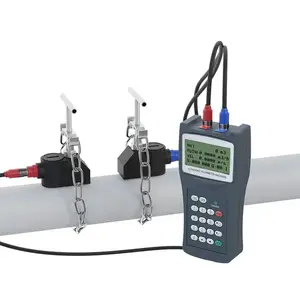

304SUS Insertion Type Thermal Mass Gas Flow Meter For Compressed Air Gas Mass Flow Meter Air Flow Meter


Hydraulic Oil Couplant Handheld Portable Clamp On Flow Meter With Data Logger Dn 15 Ultrasonic Flow Meter








Hydrogen peroxide flow meters are specialized instruments designed to measure the volumetric flow rate of hydrogen peroxide solutions through pipelines. These devices are crucial in industries where precise dosing and chemical handling are required, ensuring accurate monitoring and control of the flow of this potent chemical.
Different types of hydrogen peroxide flow meters cater to various industrial needs. The most common types include electromagnetic, ultrasonic, and Coriolis flow meters, each with unique features suited for handling the corrosive nature of hydrogen peroxide. For instance, an electromagnetic flow meter is often chosen for its non-invasive measurement capabilities and minimal pressure drop.
The application of hydrogen peroxide flow measurement devices spans across several industries, including water treatment, food processing, and pharmaceuticals. These meters play a pivotal role in processes such as sterilization, bleaching, and chemical synthesis, where the accurate dosing of hydrogen peroxide is critical.
When selecting a flow meter for hydrogen peroxide, material compatibility is paramount. Materials such as stainless steel or PTFE are commonly used in the construction of these meters to resist corrosion. Additionally, the design must ensure the safety and integrity of the system, preventing leaks and exposure to the environment.
The advantages of employing a precise hydrogen peroxide flow meter include improved process efficiency, reduced chemical waste, and enhanced safety. Accurate flow measurement ensures that the correct amount of chemical is used, which is not only cost-effective but also minimizes the risk of hazardous exposure.
Buyers should consider factors such as measurement accuracy, response time, and the flow meter's compatibility with hydrogen peroxide. It is also important to evaluate the durability and expected lifespan of the meter in harsh chemical environments.